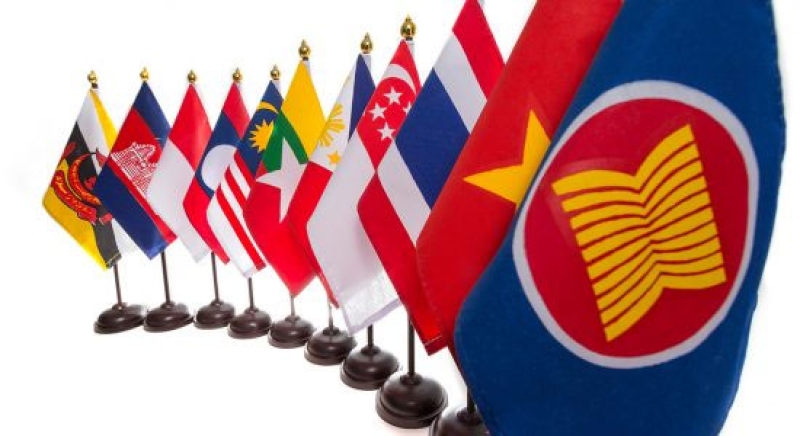- Israel Strikes Tehran with US Support Amid Nuclear Tensions |
- India Sees 9% Drop in Foreign Tourists as Bangladesh Visits Plunge |
- Dhaka Urges Restraint in Pakistan-Afghan War |
- Guterres Urges Action on Safe Migration Pact |
- OpenAI Raises $110B in Amazon-Led Funding |
US, Malaysia Sign Nuclear Pact; Asia-Pacific Alliance Eyed

Malaysia is Chair of ASEAN for 2025.
The US is reportedly considering forming a new security alliance in the Asia-Pacific, similar to NATO’s collective defence pact.
If established, the alliance could include Japan, South Korea, Australia, and the 10-member Association of Southeast Asian Nations (ASEAN), comprising Brunei, Cambodia, Indonesia, Laos, Malaysia, Myanmar, the Philippines, Singapore, Thailand, and Vietnam.
US Defence Secretary Pete Hegseth recently stated, “No one should doubt America’s commitment to our Indo-Pacific allies and partners. We will continue to wrap our arms around our friends and find new ways to work together.” He said the Indo-Pacific remains a region where the US values continuity in security alliances.
Ely Ratner, former US Assistant Secretary of Defense for Indo-Pacific Security Affairs, suggested in Foreign Affairs that the US and its Asian allies should form a collective defence pact similar to NATO. The proposed alliance is viewed as a safeguard against China and North Korea.
Asia is home to four of the world’s nine nuclear powers: India, China, Pakistan, and North Korea.
Meanwhile, AUKUS—a trilateral security pact between Australia, the UK, and the US—continues to promote a free and open Indo-Pacific.
During a visit to Malaysia, US Secretary of State Marco Rubio reaffirmed America’s commitment to regional partnerships. He participated in ASEAN-related meetings and signed a nuclear cooperation Memorandum of Understanding (MoU) with Malaysia, advancing civil nuclear energy collaboration under strict safety, security, and nonproliferation standards.
Negotiations for a 123 Agreement are underway. Once concluded, it will permit the transfer of nuclear materials and technology for peaceful purposes, deepening bilateral energy, security, and economic ties.
Section 123 of the US Atomic Energy Act requires such agreements for major nuclear transfers. These agreements help advance US nonproliferation objectives while allowing peaceful cooperation.
Currently, around 25 countries have 123 Agreements in force with the US.
However, experts have warned that a new military alliance could escalate militarization in the region, heightening the risk of conflict with China and diverting resources from global priorities like climate action.
Dr M.V. Ramana, a professor at the University of British Columbia, said the alliance would likely push member countries to purchase more US-made weapons, increasing the influence of American arms manufacturers.
Dr Palitha Kohona, former Sri Lankan ambassador to China, noted that China has a no-first-use nuclear policy and only one overseas military base, unlike the US, which has extensive deployments around China. He argued that promoting a NATO-style alliance in Asia would be excessive.
He urged prioritizing dialogue, infrastructure development, climate action, and poverty reduction over militarization, warning that past US military interventions in Asia have failed to deliver peace.
Rubio emphasized the strategic importance of the region, calling it central to global growth over the next few decades, and underscored America’s enduring alliances, particularly with Japan.

